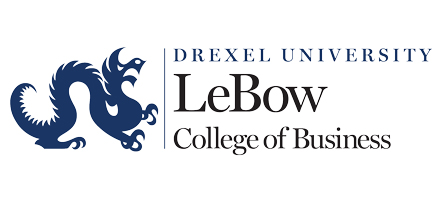The specialty master’s programs for several years have been a magnet for international students, particularly from China, Westerbeck of Eduvantis says. “To some degree, you could say this factor has driven the rise of the specialty masters market,” Westerbeck says. “We have seen conditions in which domestic schools have literally nearly filled their classes in these programs with these students. That, of course, has created its own challenges for institutions.
“I think there are a lot of reasons for this situation — the specialized master product features shorter, more focused programs, relatively welcoming arms at many institutions for these typically full-paying students, the relative quantitative nature of certain disciplines (less reliant on language skills) and, of course, the allure of the shortest, most straightforward means to get an ‘American’ graduate business school degree. The big question we are asking is whether this is a sustainable market for these programs, or whether other forces and factors will lead to change over time.”
YOURS IS TO WONDER WHY
Another question to ask, according to Vanderbilt University Owen Graduate School of Management dean Eric Johnson, is why a school created a particular program. Some programs with very high proportions of international students may have arisen out of somewhat mercenary motivations, “designed as revenue-generating programs with big classes of primarily international students,” Johnson says. “We carefully manage the international student body to create diversity and diversity of thought in the classroom, but not to fill seats. I’m sure there are cases in some of the schools where they’re just finding revenue opportunities and going for it.” It should be noted that merely having a large share of foreign students in a program does not make it a mere cash cow. Employment data from UCLA Anderson, and Carnegie Mellon Tepper, for example, show impressive graduate outcomes from programs that lean heavily toward the international.
A prospective student’s evaluation of specialty master’s programs should focus significantly on the student body and graduates’ outcomes, Johnson says. “Very much like any investment decision, it really is looking at the program, the types of students that are in the program currently, and where they go when they’re done,” Johnson says. “That typically speaks volumes for the quality of the program. Where do the students go and what are they getting paid?”
Johnson recommends school visits for those planning a specialized master’s, and potential applicants should closely examine what career services a school provides to master’s students. “They want to look carefully to make sure that that school’s investing in the program and providing the services and support you would need to land that great job,” Johnson says. “Do they have dedicated career management? Or is it kind of an afterthought?”
GETTING PAST A LACK OF TRANSPARANCY
Johnson points out that not all schools are, as Owen is, transparent about their student populations and graduates’ employment and salaries. With an absence of any materially helpful rankings, it’s up to applicants to seek all the data they can find that will assist them in predicting the value they would receive from a particular program, Johnson says.
Prospective B-school master’s students should closely analyze programs’ value propositions, says Philip Powell of Kelley. Program admissions staff should be able to describe exactly how master’s graduates benefit from the programs, and more important, whom a program will not benefit, Powell says. “If they’re trying to be everything to everybody, they’re not going to deliver any value,” Powell says. “My advice for prospective students is figure out exactly what you want in terms of career outcomes, and then look for those MS programs that actually talk about their value proposition very specifically.”





